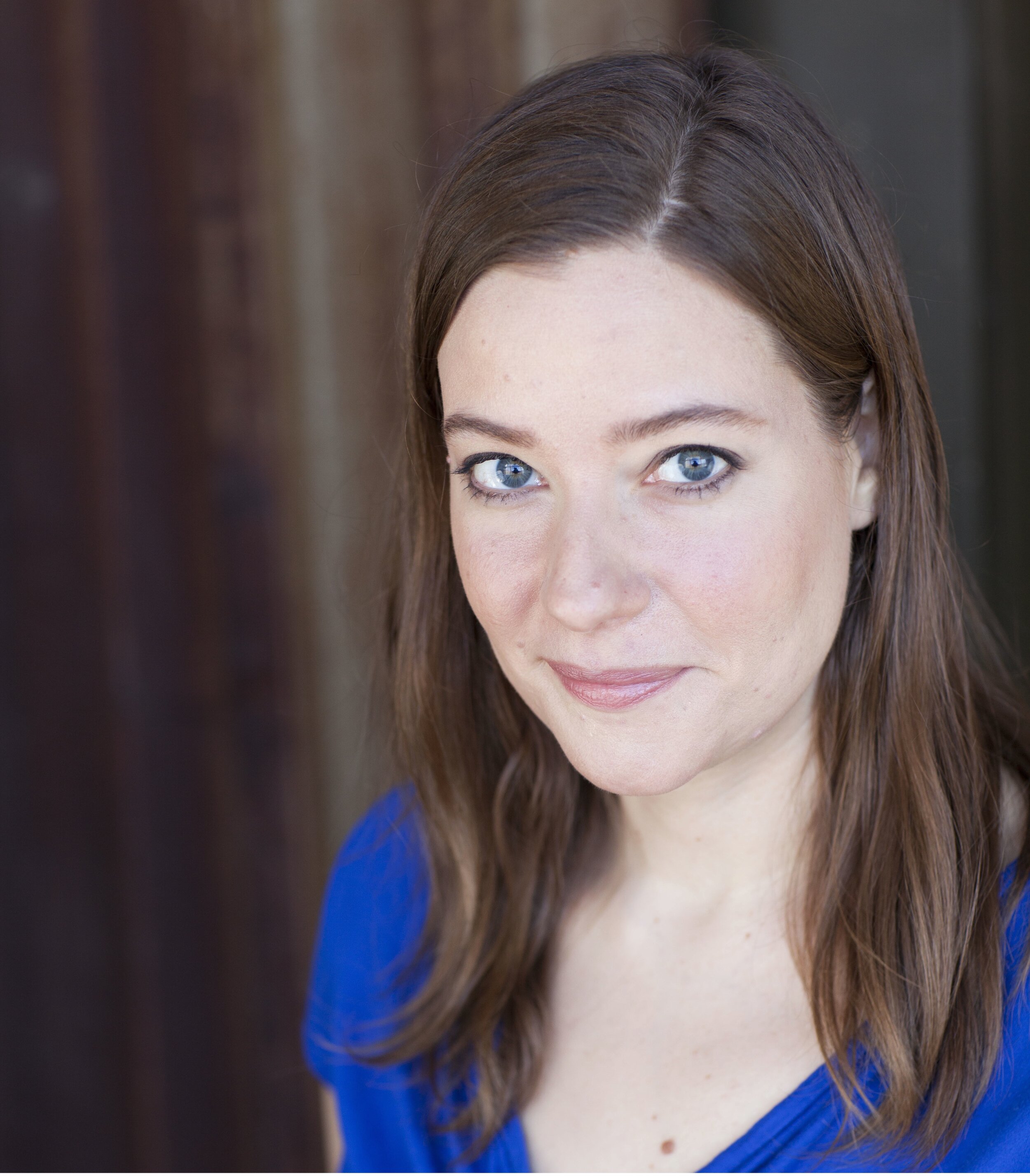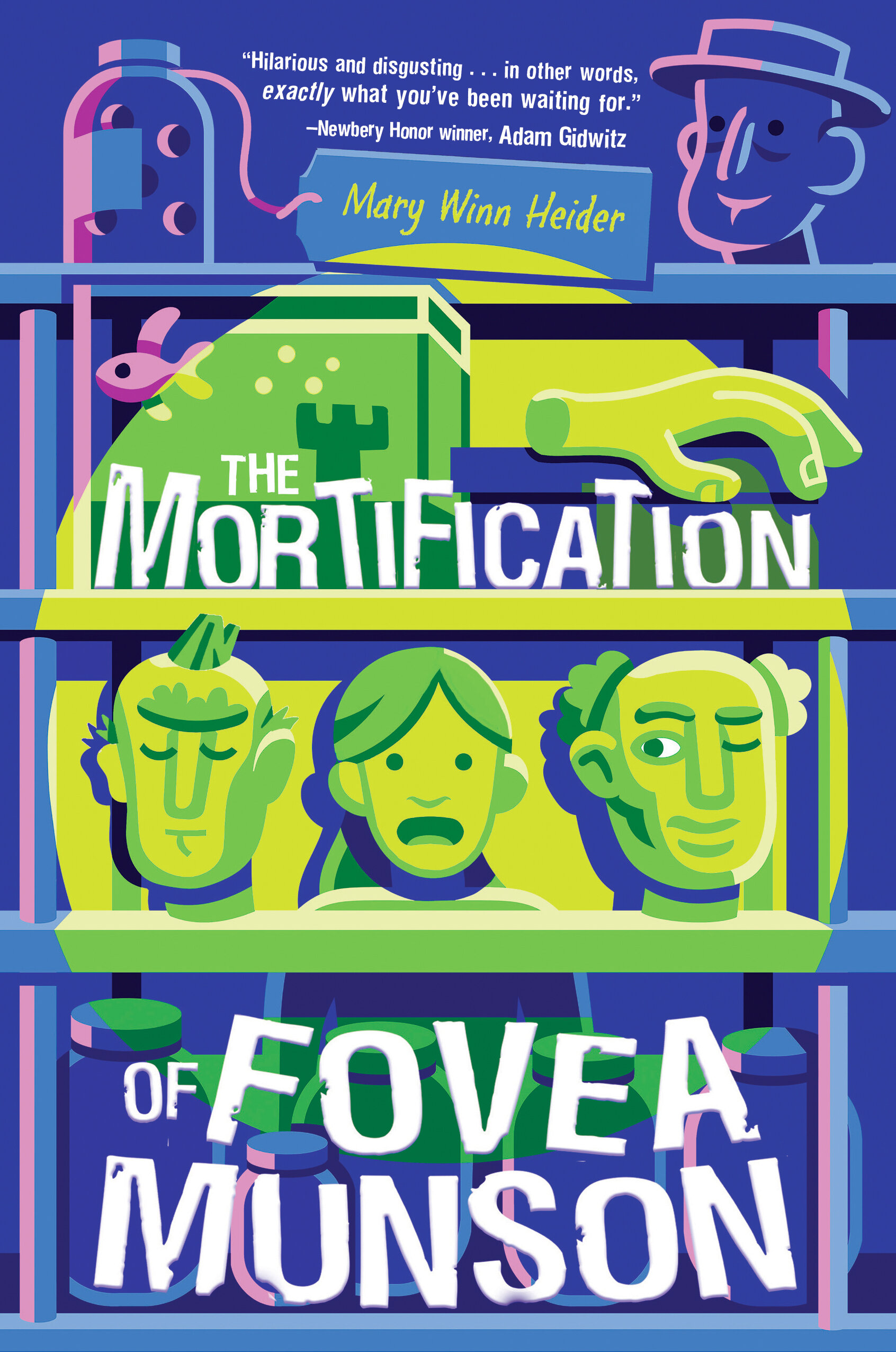Mary Winn Heider on The Mortification of Fovea Munson
 Ever since Mary Winn Heider was my student at VCFA some years ago, I've looked forward to the books that I knew she'd write--curious, eccentric, inventive. Recently, having gotten my hands on a copy of her delightful middle grade novel, I spent an afternoon chuckling over it and marveling at the machinations of its author's wondrous mind.Allow me to introduce you to The Mortification of Fovea Munson, and to the author who brings Fovea and friends to life: Mary Winn Heider. I asked Mary Winn to talk to me about her wacky new book.[UK] Talking heads and music, a loopy extravagance of wordplay, and a kid finding her way in the world--how on earth did all this come together in the labyrinths of your mind? I want to know how that brain of yours ticked its way into this story.
Ever since Mary Winn Heider was my student at VCFA some years ago, I've looked forward to the books that I knew she'd write--curious, eccentric, inventive. Recently, having gotten my hands on a copy of her delightful middle grade novel, I spent an afternoon chuckling over it and marveling at the machinations of its author's wondrous mind.Allow me to introduce you to The Mortification of Fovea Munson, and to the author who brings Fovea and friends to life: Mary Winn Heider. I asked Mary Winn to talk to me about her wacky new book.[UK] Talking heads and music, a loopy extravagance of wordplay, and a kid finding her way in the world--how on earth did all this come together in the labyrinths of your mind? I want to know how that brain of yours ticked its way into this story.
[MWH] Well, the first spark happened outside of my mind and sort of…by accident? I was looking around for a job and I landed a gig as the receptionist of the cadaver lab at a medical school in my city. It turns out very few people arrive unexpectedly at a cadaver lab! (Often those that do have nothing to say.) So as the receptionist, I did very little actual reception and had plenty of time to write—it was as dreamy as a cadaver lab can possibly be.The lab was a great workspace, but it was also immediately clear that I should set a story there. It was all life-and-death-y while still being completely absurd, and if that doesn’t sound like middle school, then I don’t know what does.As far as the rest of the puzzle, I knew Fovea and heard her voice right out of the gate. Everything else took its time. I didn’t know there would be heads until Fovea heard a noise in the lab and decided to go check it out. I had no idea what the heads wanted at first, although the options were limited. (In general, the limitations of having half of your main characters unable to move much of anything but their eyebrows was not something I’d thought through. If it had occurred to me to worry about it, I probably would have been way more stressed out about it than I needed to be. And this is probably true about most of the things we worry about when we write?)
 [UK] Very true. And really, drafting is not the time for worry.
[UK] Very true. And really, drafting is not the time for worry.
[MWB] The wordplay is inspired by my own family, but feels inevitable in this world, since medicine is a field of chewy language—all that Latin and Greek and euphemism. One of my favorite details is Fovea’s obsession with the Museum of Holography, but that didn’t enter in until my editor demanded (in the kindest way possible) that I figure out what Fovea actually enjoyed. After some mental flouncing around, I remembered that near the neighborhood where I imagine Fo’s apartment building and the lab exist, there used to be a real Holography Museum. It closed about twenty years ago, but I’d been to it just before that and it was so weird and cool—and I decided she might like it. It wasn’t until later that I realized what a perfect, intangible foil it is to her parents’ love of the corporeal.So I don’t want to make it sound like I didn’t do anything (there was SO much to do!), but I did let myself be pushed around by the story a lot, and when I needed solutions to problems, I tried to use what already existed in the story as often as possible (like the Holography Museum, for example, or when I needed something flammable and I’d already stashed tampons in a drawer many chapters earlier. Chekhov’s tampons, I’m calling them.) That’s one of the things I love about revision—finding the threads that already exist to be tied together. I’m a big believer in our writerly inner geniuses, that we subconsciously plant things that later become useful or meaningful in ways we didn’t overtly recognize when we were doing it. It might not be a great way to get out of a labyrinth—getting pushed around by the labyrinth itself—but then again, it might?
[UK] Every book teaches you something you didn’t know before. What did you learn from writing The Mortification of Fovea Munson?
[MWH] Hmm. I learned I could write a novel, which is no small thing.In the course of learning that I could write a novel, I also learned a lot about writing and about living and also about the cadaver business. I learned how amazing copy editors are...
[UK] Indeed. They are. Hats off to copy editors.[MWH] And also how long you can leave a thawing head outside in the summer before it starts to go bad.
[UK] Wow. (To quote from the immortal Lily's Purple Plastic Purse by Kevin Henkes, "Wow. That's all she could say. Wow.")
[MWH] I learned that I love revision more than I love drafting and also that when I make mistakes like accidentally ordering 600 legs, that stuff is very useful material.[UK] 600 legs? You really did? I'm speechless.
[MWH] That’s right. I accidentally ordered 600 legs, because ordering legs—among other body parts—was my job and I was probably daydreaming about my story when I should have been paying attention to the online form I was filling out. I was supposed to order ONE leg at 600 dollars and…you can probably figure out what happened. But the good news is that then I realized it could use it in my story.
[UK] ONE leg at $600....I am lost in contemplation of this, but go on.
[MWH] My grandparents donated their bodies to science and I learned how that process works on the other end. I learned how to write about stuff that scares me, and how to do it in a way that is both irreverent and loving. Although—full disclosure—I’m trying to do that again, now, and I think it might be something I’ll have to learn all over again every time I write anything. But I’m here for it.
[UK] I'm so glad you are. What a treat. I can't wait to see what you come up with next, Mary Winn Heider!